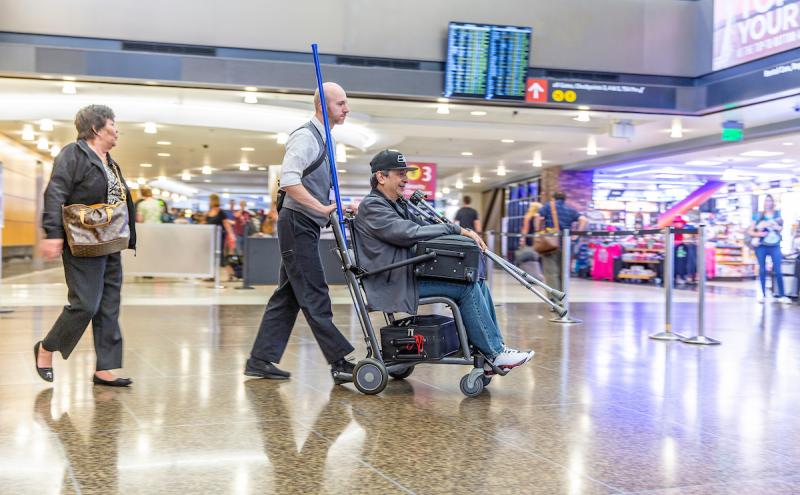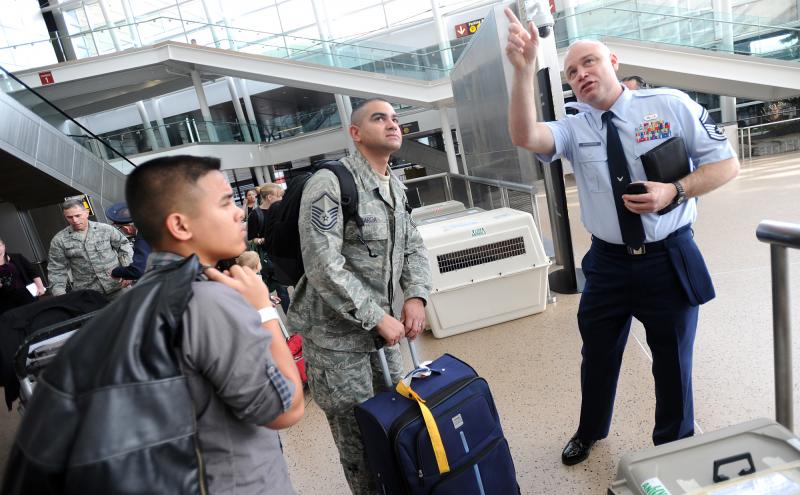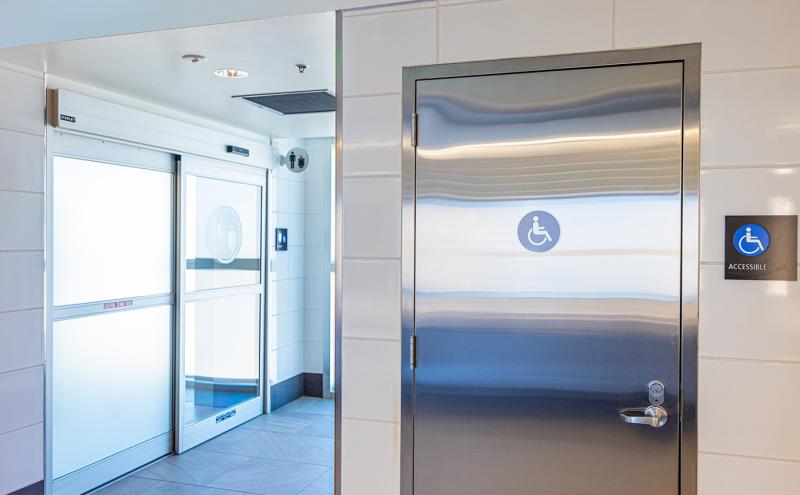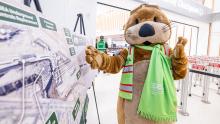
For centuries, societies have relied on the power of sports to unite, challenge, and inspire. In 2000, Nelson Mandela, believing in the power of rugby to unite a divided country, said “Sport has the power to change the world. It has the power to inspire. It has the power to unite people in a way that little else does. It speaks to youth in a language they understand. Sport can create hope where there was only despair.”
And one of the best examples of this is the Invictus Games, an adaptive sports competition, that is taking place in our region. Founded by Britain’s Prince Harry in 2014, the Games provide wounded, ill, and injured service members a renewed sense of purpose through adaptive sports. This year, approximately 500 military athletes from 23 countries will compete, demonstrating resilience, strength, and camaraderie.
Team U.S. Invictus Games athletes recently arrived at Seattle-Tacoma International Airport (SEA) on their way to a training camp at Joint Base Lewis-McChord (JBLM). Their journey continues to the Invictus Games held in Vancouver and Whistler, Canada from February 8-16.
Core sports include Indoor Rowing, Sitting Volleyball, Swimming, Wheelchair Rugby, and Wheelchair Basketball. This year in Whistler, the Games are introducing the first-ever winter sports including Alpine Skiing and Snowboard, Nordic Skiing, Biathlon, Skeleton, and Wheelchair Curling.
Learn about the Invictus Games:
- Watch introduction video
- See the lineup or buy tickets
- Celebrate the athletes by posting your photos
- Follow the Games @ INVICTUSGAMES2025
- Watch the livestream
SEA Airport and the Port of Seattle are committed to supporting veterans and travelers of all abilities. SEA offers accessible facilities, traveler assistance, and programs that create a welcoming travel experience for all. The Port of Seattle also supports veteran career transitions through its six-month Veteran Fellowship Program, equipping service members with skills for success beyond the military.
So, we were excited to chat with two Team U.S. athletes and a coach to learn how the Invictus Games have shaped their recovery, growth, and connection to a greater purpose. Follow a few of these athletes on their journey.
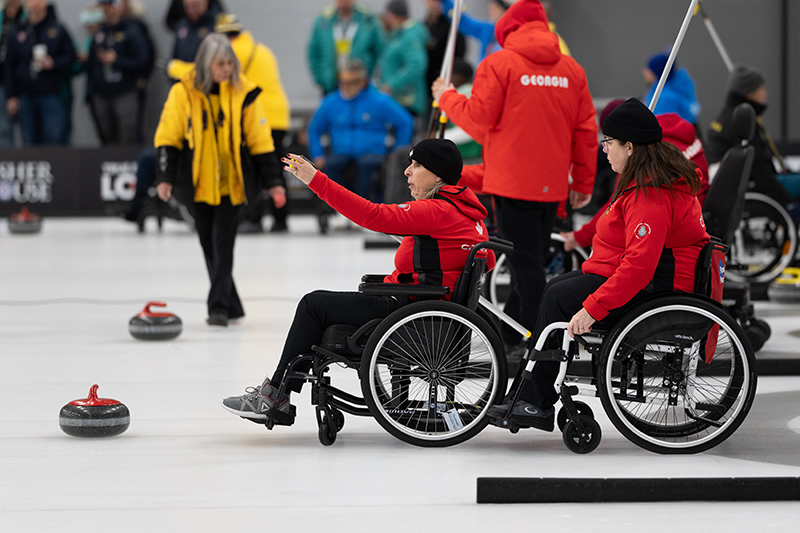
Meet the athletes
Carnell Martin
Branch of service and rank: Master Gunnery Sergeant, Marine Corps Veteran
Sport(s): Biathlon, Skeleton, Indoor, Rowing, Wheelchair Basketball (The U.S. just took home the Wheelchair Basketball silver medal)
Social media: @cmarty2000 (Instagram)
What does competing in the Invictus Games mean to you?
It means being able to overcome all the obstacles to arrive at this point, and using the resilience and strength in my mind and body to prepare me for the tasks and challenges I will face during the spirit of these games.
What do you like about participating in Invictus Games?
I like the team building. I like coming together as brothers and sisters and sharing our stories and journey together. Some of us were in dark places, and now we’re in the light. We’re making our light shine to the rest of the world, and we’re doing it as a team and supporting each other. Starting from where we came from to where we’re at, we’re all winners today. Throughout these games, whether we come home with a medal or not, just being here and being together is a win.
How has being an Invictus Games athlete helped with your growth or recovery?
The Games have helped me tremendously. I’ve been involved with the Warrior Games and Invictus since 2013. When I was injured in Iraq and unable to perform my duties on active duty, I was introduced to adaptive sports. It gave me back that mission again. It gave me back that team spirit. It gave me goals again.
When you can’t perform your duties anymore you can lose your identity. When you’re a leader, especially in the military, you wonder what’s next? I can’t lead because I’m hurt or injured or sick. Adaptive sports have given me that meaning back and it’s been a life changer. It’s taken me to places and introduced me to people I would never have been able to probably see in my lifetime. Invictus Games means so much. It means conquering. It means overcoming. It means healing. It means being someone else’s inspiration.
Michael Murphy 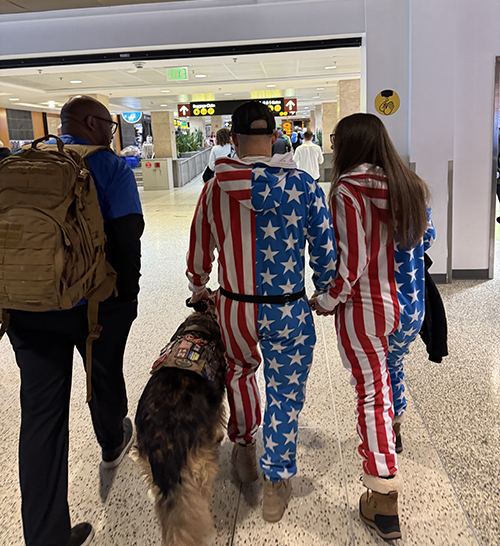
Branch of service and rank: Army Veteran Retired Staff Seargent
Sport(s): Alpine Snowboard, Indoor Rowing, Skeleton, and Swimming
Social media: @murphandmaverick2020 (Instagram)
What does competing in the Invictus Games mean to you?
As a blind adaptive athlete, the Warrior Games was my first glimpse of hope. After my injury, I felt I had no future. I went from being confined to my home to being able to compete in cycling, swimming, and running track. Being on Team U.S. is an honor, and for me, what is most important is the brotherhood and sisterhood of Invictus. When I am around other athletes like me, I don’t feel like I am blind.
What keeps you inspired in the middle of hard work?
There’s a lot of different things, but I think the biggest thing is I’ve got a personal mantra: Triple F — Faith, Family, Freedom. Anytime I’ve got adversity, whether it’s a workout, a competition, or even just something going on in life, I just look back. Primarily faith — my faith in God pushes me forward. My family, from my fiancé to my immediate family to Maverick [Michael’s service dog], and just knowing who has my back keeps me going. And freedom from all aspects — it's a little different now being blind — freedom of independence, just walking around, but also the chance to live in this amazing country that we live in thanks to these amazing heroes that we’re here with today. I’ve got a lot of internal motivation that I use in all aspects of life.
How do you feel when you’re participating in your sport? What’s the thing that comes to mind when you compete?
I’d say freedom. For me, I lost my sight in 2018. It was a freak accident, and I honestly didn’t know what to expect. I thought my life was over. I was depressed. I dove into alcohol and a bunch of negative stuff. I didn’t want to live anymore, and I thought it was over. Then I found adaptive sports, initially hearing about Warrior Games and then Invictus, and it’s completely turned my life around.
My first full competition was in Invictus in 2022, and I think of that moment of getting on the track and being able to just go and run and compete. Being blind, I have a guide required no matter where I go. Whether it’s snowboarding, running, or cycling, I’m always with somebody. There are certain sports like snowboarding where I have a guide, but I’m also in my own craft. I get out there on the mountain and trust someone to let me know if there is a bump coming up or what the terrain is. I have to not only trust that person but also apply my own skill. So, it just reminds me that I am capable.
I tell everyone all the time that the adaptive sports world in general is the one place that I don’t feel blind. I could be walking around back home trying to figure out how to find salt in the kitchen and feel like an idiot; but around here, I’m not afraid to ask somebody for help. Just that brother and sisterhood, the comradery, and just feeling at home. It’s a huge family.
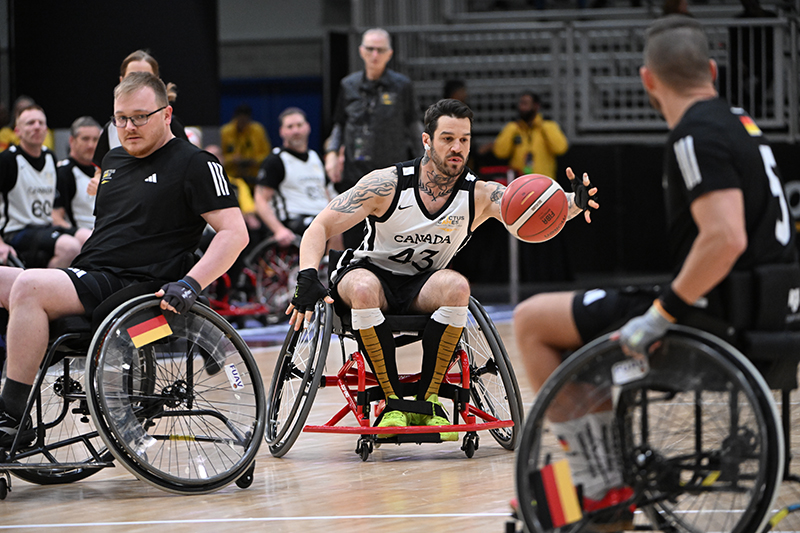
Joel Rodriguez (Coach and former athlete)
Branch of service and rank: Retired Army Air Traffic Controller
Sport(s): Wheelchair Rugby
What do you like about participating in the Invictus Games?
For me, of course competition is huge. I’m a competitor, so competing is a big part of my life. But I also love building the bonds with teammates and the other nations as well. I still talk to some of the Australians from when I competed in Sydney. Not every day, but probably once or twice every quarter. That’s a huge part — it’s those bonds and relationships that you build.
How has your military experience prepared you for competition?
That warrior ethos, that “don’t quit” mentality, is embedded in all of us. When things start to suck or you’re losing, that mindset clicks without you even recognizing or realizing it. You think, “Well, I have to fight, so what am I going to do? I’m just going to fight.” I think that portion of it is what has kept me in competition, in sport, and in this program. I just see value in the program.

